#can i immigrate via lottery
Text
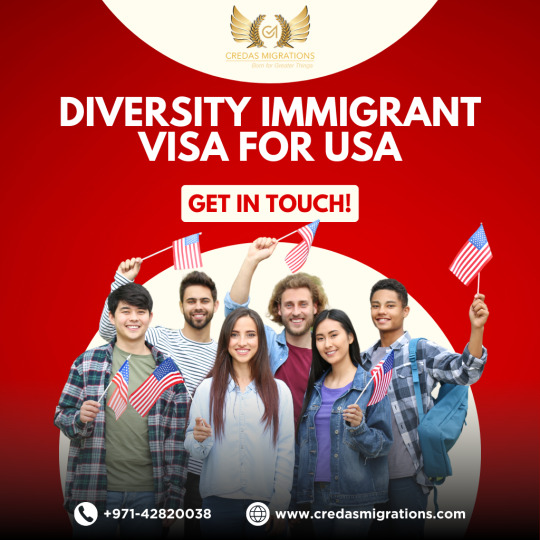
The US Green Card Lottery is launched by the government to welcome immigrants from all parts of the world for diversification. Once you win the lottery, you can start a new and happening life in the US.
#Diversity Immigrant Visa Program#Can I Immigrate Via Lottery#Diversity Visa Lottery#DV Lottery 2024 Results#Green Card Lottery#Us Green Card Lottery
1 note
·
View note
Text
Immigrant Battling Cancer Among Trio Who Won $1.326 Billion Powerball Ticket: Oregon Lottery! The Ticket Was The Fourth-Largest Powerball Jackpot in History.
— By Leah Sarnoff | April 29, 2024
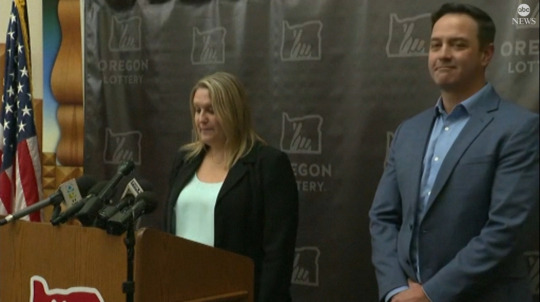
Oregon Lottery Announces 3 Winners of $1.326 Billion Powerball Ticket. The ticket was the fourth-largest Powerball jackpot in history.
The winners of the $1.326 billion Powerball ticket were officially revealed by the Oregon Lottery on Monday.
During a press conference at the Oregon Lottery Headquarters in Salem, Oregon, husband and wife Cheng and Duanpen Saephan and their friend Laiza Chao were announced as the winners of the massive lottery drawn earlier this month.
Cheng Saephan, an immigrant from Laos living in Portland, explained how life-changing the lottery win is amid his eight-year cancer battle.
"I'm happy for my family, they will have a good life," Saephan said during the press conference. "I'm battling cancer so thinking how am I going to spend all the money," he said, adding that he can now find a "good doctor" and that he and his wife plan to buy a home with their lump-sum winnings.
Saephan immigrated to America in 1994 and used to work in Aerospace.
"My Life Has Been Changed... I'm Happy For My Family; They Will Have A Good Life."
He and his wife and their friend, Laiza Chao, bought 20 Powerball tickets in hopes of winning the jackpot.
"I call Laiza as she's driving to work, I told her you don't have to go to work now; we won the lottery; we won the jackpot!" Saephan recalled during the press conference.
The staggering $1.326 billion Powerball ticket was the fourth-largest Powerball jackpot in history and the eighth-largest among U.S. jackpot games, according to the Oregon Lottery.
On April 6, a lucky ticket matching all six Powerball numbers was sold at the Plaid Pantry convenience store in Portland, Oregon, the state's lottery announced at the time.
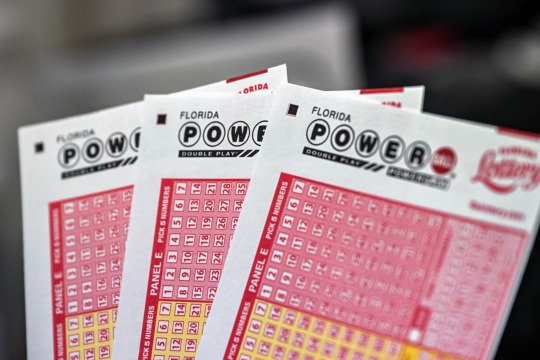
The Numbers Drawn For The Jackpot Were 22, 27, 44, 52 And 69, With A Powerball Of 9, The Lottery Said.
Powerball lottery tickets pictured inside a store in Homestead, Florida July 19, 2023. Giorgio Viera/AFP via Getty Images
"This is our first winner on this scale, so this is very exciting for us," Melanie Mesaros, spokesperson for the Oregon Lottery told ABC News on April 7.
The lottery winners have the opportunity to accept a lump cash sum of $621 million or receive annual payouts of the $1.3 billion, also pre-tax -- starting with one immediate payment followed by 29 annual payments that increase by 5% each year, the lottery said.
The jackpot is subject to federal taxes and state taxes in Oregon.
The Plaid Pantry location in northeast Portland will also receive a $100,000 bonus for selling the winning ticket, according to the lottery.
"Plaid Pantry is thrilled to learn that one of our 104 Oregon stores sold the $1.3 billion dollar Powerball ticket," Plaid Pantry President and CEO Jonathan Polonsky said in a statement to the Oregon Lottery. "This store is one of our newest and most loved stores. Proceeds from the Oregon Lottery fund many programs that benefit everyone in the state, and we've been a proud partner with the Oregon Lottery since the very beginning."
The individuals with the winning $1.326 billion ticket came forward on April 8 and underwent a vetting process before their identity was announced.
"This is an unprecedented jackpot win for Oregon Lottery," Oregon Lottery Director Mike Wells said in a press release on April 8. "We're taking every precaution to verify the winner before awarding the prize money, which will take time."

An aerial image shows the White Stag neon sign as vehicles cross the Willamette River in downtown Portland, Oregon, Jan. 25, 2024. Patrick T. Fallon/AFP via Getty Images
The Powerball jackpot previously ballooned to an estimated $1.3 billion ahead of the April 6 drawing after a record-tying streak with no jackpot winner.
The Powerball hasn't been won since Jan. 1, when a ticket sold in Michigan claimed a $842.4 million jackpot.
In 2022, the largest U.S. lottery jackpot, worth $2.04 billion, was won in California.
Powerball is a multi-state jackpot operated by 44 states, plus the District of Columbia, the U.S. Virgin Islands and Puerto Rico, according to Oregon Lottery.
Powerball tickets are $2 per play and the odds of winning the jackpot are 1 in 292.2 million, according to Powerball.

"My life has been changed... I can rest my family and find a good doctor." The winners of the $1.3 billion Powerball jackpot were officially revealed by the Oregon Lottery. One of the winners, Cheng "Charlie" Saephan, has been battling cancer since 2016.
"I'm on disability ... used to worked on aerospace and make airplanes," Saephan said at a press conference. He added that he's currently going through chemotherapy and plans on buying a house and finding himself a good doctor to continue his treatment. The staggering ticket was the fourth-largest Powerball jackpot in history. Saephan will be splitting the prize with his wife and his longtime friend. "I'm happy for my family; they will have a good life."
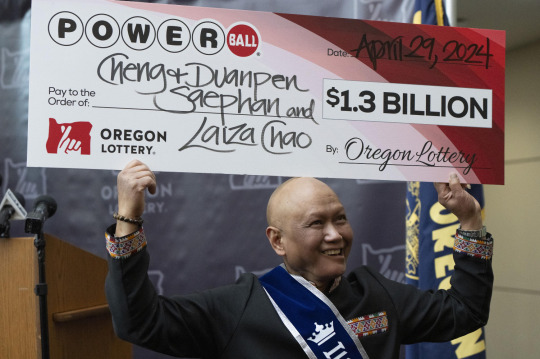
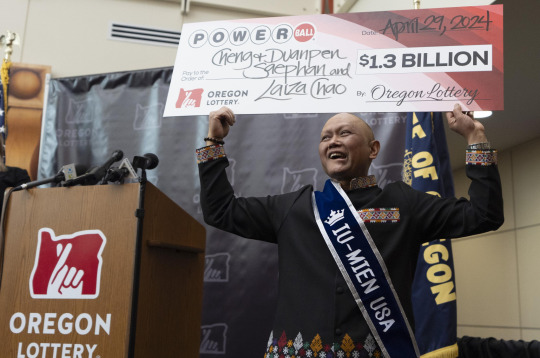
Cheng "Charlie" Saephan holds display check above his head after speaking during a news conference where it was revealed that he was one of the winners of the $1.3 billion Powerball jackpot at the Oregon Lottery headquarters on Monday, April 29, 2024, in Salem, Oregon. AP Photo/Jenny Kane
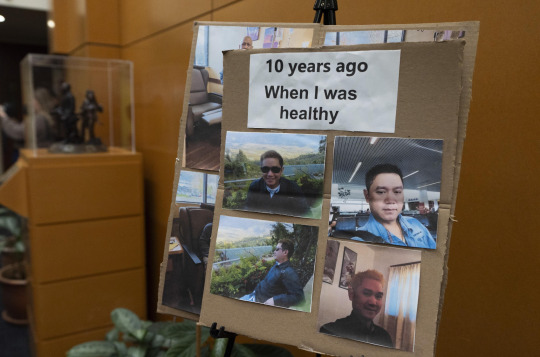
Images of Cheng "Charlie" Saephan are displayed during a news conference where it was revealed that he was one of the winners of the $1.3 billion Powerball jackpot at the Oregon Lottery headquarters on Monday, April 29, 2024, in Salem, Oregon. AP Photo/Jenny

Oregon Lottery External Communications Program Manager Melanie Mesaros holds a list of numbers as Cheng "Charlie" Saephan speaks during a press conference after it was revealed that he was one of the winners of the $1.3 billion Powerball jackpot at the Oregon Lottery headquarters on Monday, April 29, 2024, in Salem, Ore. In the weeks leading up to the drawing, Saephan wrote out numbers for the game on a piece of paper and slept with it under his pillow, he said. He prayed that he would win, saying, "I need some help - I don't want to die yet unless I have done something for my family first." AP Photo/Jenny
0 notes
Text
Home

Employ Yourself In USA Firms Using H1B Generic Visa Immigration
The generic immigration for applying for an H1B visa in the US permits employers to temporarily employ foreign workers for a specialized task. The period of the H1B visa is three years which can be extended to 6 years. To get an H1B visa, an employee should possess a bachelor's degree or its equivalent. Maximum 65000 workers are allowed to work in the US with the H1B visa category, besides 20, 000 H1B visas are issued for employees who completed a master's degree from the USA.
H1B visa needs theoretical as well as sensible understanding in specialized work. The employers withhold the Medicare taxes and social security from the wages that are paid to their workers who are in H1B visa status. According to the policies of an H1B visa, an individual can be employed in a specialty occupation based on their proficiency in a specific field.
The Basic H1B Visa Needs You Need To Know!
The applicants need to meet the listed below H1B visa requirements to attain their eligibility for getting an application for H1B visa:
1. The applicant should withhold a bachelor's degree, master's degree, or the foreign equivalent similarly.
2. The degree that the applicants possess must be common for their job.
3. The work to be assigned needs a professional expert in a specialty occupational field.
4. The applicant ought to have extensive knowledge of the pursued degree.
5. The company has to specify why the applicant is not qualified for their respective position.
The H1B visa application procedure starts up with the main step of locating an H1B sponsor. Since H1B is a work visa, the applicant needs to be sponsored by a US employer. If somebody agrees to go into the US via an H1B visa, they need to gain employment from a US resident or employer willing to sponsor into the US The following step is to send the Labour Problems Approval (LCA) online with iCERT site to the Division of Labour (DOL). Even more, the company ought to submit the Type I-129. The last step is to apply to the US embassy office or consulate. After submission, it would barely take 2 to 3 days to get their confirmation about visa status.
Newest Update On H1B Visa 2020

It has come to be much tougher for applicants trying to seek their H1B visa 2020. A lot of them do fail in getting chosen for the H1B visa quota. USCIS introduced the H1B visa 2020 season started on March 19th, specifying that they shall accept H1B visa 2010 petitions from April 1st. Based upon the stats, it is observed that USCIS begins accepting applications for an H1B visa for the next fiscal year right exactly from 6 months before the start of the next fiscal year. USCIS released the number in March 2018, 65, 000 visas for H1B regular quota as well as 20, 000 visas for H1B master's quota. For the very first time applicants, the above quotas are also called an H1B visa cap. On April 5th USCIS introduced that they had gotten sufficient petitions for regular cap quota and further said that there would certainly be a lottery as well.
1 note
·
View note
Text

( Nadech Kugimiya , 27, cis male, he/him ) — whoa, was that SANIT “SAMUEL” JIRAKIT-KELLER i just saw at LAW FIRM? i’ve seen them around town before, they’ve been here for 5 YEARS. from what i’ve heard, they’re a member of the KELLER family. for a IMMIGRATION PARALEGAL/DANCE INSTRUCTOR, they’ve been known to be -VENGEFUL and -IMPULSIVE, but can also be +COMPASSIONATE and +STRAIGHTFORWARD. i hope they don’t cause too much trouble! // min 24, she/her, est
Heyyy Im Hera and Heres my Son- the extensive bio will be here but the quick notes version is basically the following:
He was born to Mama Keller and a grocer named Arthit Jirakit in England. It was an affair that wasn’t supposed to happen but it did.
Sanit or Saint as his siblings called him had a hard time at school, it was hard to be a kid and his brother jibbing him wasnt a good experience
Sanit at the time, had the small hope that at least in the united states he could have a chance but his biological father stepped in and kinda changed stuff up
In Arthit’s point of view it wold way too hard for him to leave but really he wanted Saint there to take care of him and own the grocery store.
Saint was going to try to escape to the States when he turns eighteen he was conscripted to the Thai army via the lottery system
Around that time Thailand was facing bad shit around the border of Cambodia.
He was twenty when he was about to leave when Arthit passed and the grocery was foreclosed,There was no will proving Arthit had a kid leaving Saint essentially homeless
Saint had no choice but to stay in a country that was hard to call home, taking whatever job he could to stay alive
There was a sliver of hope when Saint met Oat *WC Maybe in Future*, someone Saint fell hard for. He wanted to marry her but her parents didnt approve of a young 20 something with no life goals.
Thats when Saint was heartbroken and hopeless. He basically started smoking and gambling his earnings. It wasn’t until he met a monk that told him it was going to be okay. By the time he was twenty one, he joined a monastary.
For a year and half, abstaining from a bad things like gambling and sex
It was a stroke of luck he even knew where he heard from about Mr. Keller becoming chief justice on his international station. And he saw his mother , smiling in the photo.
He went to an online cafe and grabbed her number, and what was left of his allowance and called her in a convience store
.It was a heartfelt message he left for his mommtelling her he was okay and in a monastary
And by a very literal miracle. Like literal miracle. Someone called back the convience store.The associate made Saint tell them everything that happened and to send a form of contact.
Soon he found himself on a plane back to the New York.
And lets just say everyone was surprised to see once shaggy haired round faced kid as a twenty three year old man with a shaved head
. Like This
Everyone was surprised how soft spoken he was and his mannerisims. Kinda like living with a stranger
Mama Keller insisted Saint or Samuel should go see a therapist who dvised him to take on a hobby which was dance
He even went to dance school and wanted to be a dance instructor but his stepdad was like get something a bit more stable.
It was gay panic
Became an Immigration Paralegal because it was also something he believed in and being fluent in Thai is actually pretty helpful
But kept the part time dance instructor and worked freelance at heaven
Also where he happened to Luna and he won her heart with his sincerity but knew had to keep it secret
Personality
At first glance people can tell hes a sweet guy
But he’s also an introvert and self concious
Cares about his family but finds it so hard because its been ~8 years since he saw them
Wants to be there for Luna but has a fear that the Montanas would disaprove hence the secrecy
A really broken dude but very few know about it
Connections
Friends at the law firm
Dance Partners
O Hara members
Montana family members who were like ummmm why you dating Luna
Thats all I can think of,
Love him okays

8 notes
·
View notes
Text
Best (Cheap) Date Ideas in NYC
Dear Single Gentlemen of New York City,
Finding Mrs. Right isn’t easy, and it’s certainly not cheap. That’s why I’m here to extend an olive branch and share some insider tips on great date ideas that won’t break the bank.
Tip #1: Never underestimate the power of a good walk.
These are the BEST walk-friendly locations in NYC:
1. Battery Park (Downtown Manhattan):
Battery Park is conveniently located, great during all times of the year, and has something for everyone.
Grab a drink or two at Pier A Harbor House ($$). If you’re visiting during the warmer months, opt to sit outside. This is the BEST place to catch the sunset over the Hudson River. You’ll get unobstructed views of Lady Liberty, Governor’s Island, Brooklyn, and the Verrazano Bridge.
When you’re done with drinks, make sure to check out these attractions:
American Merchant Mariners’ Memorial
Castle Clinton
SeaGlass Carousel
Staten Island Ferry
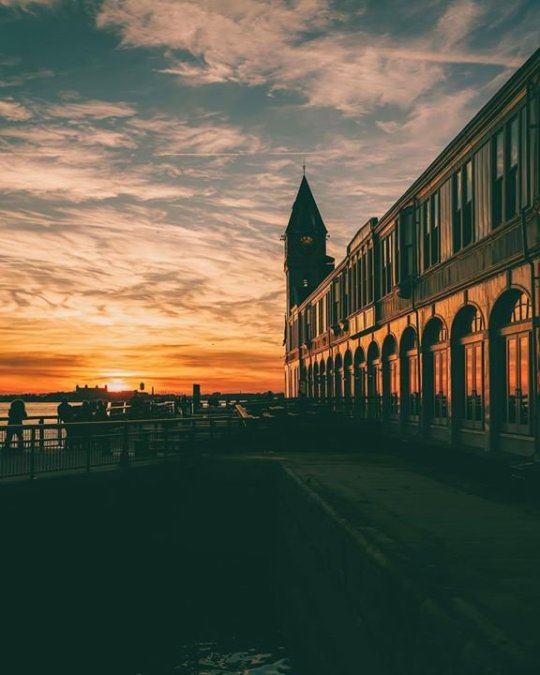
2. Hudson River Park (Downtown Manhattan, West Side Highway):
Hudson River Park is one of the most underrated locations in Manhattan. It has stunning gardens, ample rest areas, and (easily!) one of the best bike lanes in the city.
Start at Pier 45 (Enter: Christopher St) and walk down to Pier 25 (Exit: Canal St/Franklin St). Go towards the tallest building in town (1 World Trade).
Stop to grab a drink at Grand Banks ($$$). This location has major “wow” factor because it’s a retired sailboat-turned-oyster bar. After you’re done with drinks, consider playing a game of mini golf at Pier 25 Mini Golf.
Looking for more budget friendly options?
Take your date to people watch at the volleyball, basketball, and tennis courts nearby.
Bump up the adventure factor by renting a *FREE* kayak at the Pier 26 Downtown Boat House (May-October only).

3. Washington Square Park (West Village):
The famous marble arch, the fountains, the performers – what’s not to love about Washington Square Park? Smack in the middle of my favorite Manhattan neighborhood, WSP offers a relaxed atmosphere with historical finds around every corner. Make sure you check out these famous landmarks when you’re in the area:
Mark Twain House (14 W. 10th St)
The narrowest apartment in NYC (75 ½ Bedford St)
The Friends Apartment (100 Bedford St)
Grove Court (Gated complex between #10 and #12 Grove St)
Carrie Bradshaw’s Apartment (64 Perry St)
And many, many more here: https://freetoursbyfoot.com/things-to-do-in-greenwich-village/
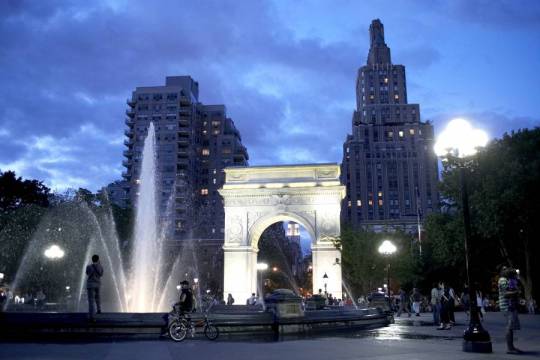
4. Brooklyn Bridge Park (Brooklyn Heights):
There is something so romantic about Brooklyn Bridge Park. It totes a lot of the same perks as Hudson River Park (free kayak rentals, gorgeous views, sailboat restaurants—the Pilot), but has more of that “rustic charm.” It’s also one of my favorite places to have a picnic. Which brings me to Tip #2:

Tip #2: Skip the restaurants and opt for a picnic instead.
Put in a tiny bit more effort and reap the rewards. Your date will be impressed because you went the extra mile, and you won’t be burdened with a steep restaurant bill.
Here’s the ultimate picnic game plan:
Make sure you have an insulated lunch box/container.
Buy (2) small travel mugs or thermoses. Fill them with chilled wine.
Make sure you know which type of wine your date prefers*
Make sure you don’t get caught drinking in public*
Buy assorted pre-cut cheeses at your local grocery store.
Buy a box of crackers.
Bring plastic utensils/napkins/paper plates.
Bring a picnic blanket or a few beach towels.
Consider the above purchases investment pieces. Even if your date doesn’t go well, you can always reuse a picnic blanket or thermos.

Tip #3: Take advantage of discounted rates at museums, zoos, and botanic gardens.
Drinks are great, but have you ever seen the mummy exhibit at the Brooklyn Museum? Why not check it out?
Museums:
The Metropolitan Museum of Art (+Met Breuer, Met Cloisters) are “pay-as-you-wish” for residents of New York with valid state ID.
Brooklyn Museum – Free the first Saturday of every month (5-11:00 PM)
The Frick Collection – Free the first Friday of every month (6-9:00 PM)
The Jewish Museum—Free every Saturday
The Morgan Library and Museum – Free every Friday (7-9:00 PM)
Museum of Art and Design – Pay-as-you-wish Thursday (6-9:00 PM)
Museum of Modern Art – Free every Friday (4-8:00 PM)
National Museum of the American Indian – Always free
New York Historical Society – Pay-as-you-wish Friday (6-9:00 PM)
American Folk Art Museum – Always free
Cooper Hewitt, Smithsonian Design Museum – Pay-as-you-wish Saturday (6-9:00 PM)
Zoos/Aquariums:
Bronx Zoo – Free on Wednesdays
New York Aquarium – Pay-as-you-wish Wednesdays (3-5:00 PM)
Staten Island Zoo – Free on Wednesdays (after 2:00 PM)
Botanic Gardens:
New York Botanic Garden – Free grounds admission on Wednesdays and Saturdays
Queens Botanic Garden – Free admission daily (November – March). Free Admission Wednesdays (3-6:00 PM)
Brooklyn Botanic Garden—Free admission from 8-12:00 Noon on Fridays (March – November). Free on Winter weekdays (December-February).

Tip #4: Take the road less traveled.
Here are some more “obscure” NYC locations/date ideas that are perfect for the girl or guy in your life that loves adventure:
Take a free ride along the Hudson River via Staten Island Ferry.
Take the tram from Manhattan to Roosevelt Island. Here, you can explore the abandoned smallpox hospital, the Franklin D. Roosevelt ‘Four Freedoms Park,’ and the Roosevelt Island lighthouse.
Take the ferry to Liberty Island and Ellis Island. Tour the Statue of Liberty and the National Museum of Immigration. *Note: must book tickets in advance.
Take a tour of NYC’s abandoned City Hall Subway Station.
Visit the Stephen A. Schwarzman ‘Main Branch’ of the NYC Public Library. Make sure to check out the Rose Main Reading Room.
Visit the “Portal down to Old New York,” a series of preserved remnants from 17th Century New Amsterdam.
Visit Coney Island. Take a ride on The Cyclone, walk along the boardwalk, and make sure to stop and grab a Nathan’s hot dog.
Try your luck at the Broadway lottery and see if you can snag an orchestra seat for well below retail value.
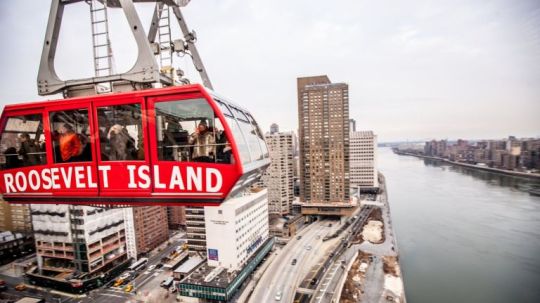
I hope that these tips and tricks serve you well. If you have any comments or suggestions, please feel free to submit them via the “Ask Me Anything” box.
Thanks all, and happy saving!
-Your Favorite Russian Hacker
#new york#newyorkhacks#date ideas#dating#nycdating#tourism#nyctouristattractions#travel#adventure#advice
3 notes
·
View notes
Text
How to apply for green 파워볼게임 card Powerball and get legal
We may have all seen a regular 실시간 파워볼게임 Powerball in action. Having a chance to win a prize if you’re selected at random in the Powerball is exciting. US State Department has also stepped up to run the lottery for permanent residency in the United States.
Diversity Powerball, also known as the green card Powerball, is an informal abbreviation for the official name: Diversity Powerball (DV). This program gives green cards to 50,000 people as part of the random Powerball process. It’s meant to give immigrants from all over the world a chance to come to the United States.
How do 동행복권 파워볼게임 I know if I’m a good candidate?
First and foremost, the screening process is critical. The Powerball program will only accept applications from those who meet the prerequisites. This program is only open to citizens of a country that qualifies, as well as those who meet the educational or work requirements. It is possible to claim eligibility even if you do not come from a qualifying country through your spouse or, if you are single, through a parent who does.
For each year, the list of countries that is eligible for consideration changes. According to the law, no diversity visas will be granted to citizens of countries with a high rate of admission. The list of countries whose citizens are ineligible for the DV can change from year to year, as there is a separate determination made before each annual DV entry period. 파워볼
The State Department is solely responsible for administering the Powerball program and 메이저 파워볼게임 overseeing the green card Powerball program. Participants in the lottery must meet all of the criteria established by the company. For the most part, applications are only accepted for a limited amount of time each year, usually from October to December of the previous year. Applicants are only allowed to submit one application at a time, and multiple submissions disqualify them.
Application forms are filled out and e-mailed. Various websites assist with the online application process. To apply for a green card through the Powerball lottery, you must fill out and apply online, which is free. A confirmation number will be sent once the application and all required photos have been submitted. This number can be used to track the progress of an application on the official government website.
As far as the 나눔로또 파워볼게임 application is concerned, the photos are just as important. Each member of your family must have a photo included in your application if you include them. There will be no human involvement in the selection process at all; only the winners will be notified via postal mail.
If you’re a Green Card Powerball applicant, you’re probably worried about being scammed by websites promising to increase your winning chances. Don’t let the DV Powerball Program scare you away from applying for a green card. There are other ways to get a green card as well.
Knowing how the DV Powerball program works
Many people want to live and work in the United States, and the DV Powerball Program is one of the most eagerly anticipated programs of the year. Here are some frequently asked questions and their associated answers, which should be helpful to anyone considering applying to the DV Powerball program.
a Powerball jackpot 파워볼사이트 winner
When applying for a Diversity Visa, the following questions are frequently asked:
Is there any information available about the Diversity Visa Powerball Program?
The State Department’s DV Powerball program aims to increase the diversity of immigrants by allowing them to live and work in the United States. Immigration to the United States becomes more diverse as the winners are awarded 50,000 visas.
To play DV 사설 파워볼게임 Powerball, you must meet certain requirements.
To participate in the Powerball, there are only two main requirements. There are a few prerequisites: the applicant must be a citizen of an eligible country, preferably one with lower entry requirements, and they must also meet certain educational and training standards.
Participation costs how much?
The Diversity Visa Powerball is free to enter. If you’re selected, you’ll be required to pay for an immigrant visa as well as a visa Powerball fee.
Is the DV Powerball open to residents of the United States?
A person who applies and submits an entry can be located anywhere in the world.
Can I apply 파워볼게임 분석 if I was not born in one of the countries listed as eligible?
To participate in the DV Powerball, even if you were not born in an eligible country, you must either have a spouse from an eligible country or one of your parents is a native of an eligible country.
Is it possible for a husband and wife to apply separately?
If both the husband and the wife are eligible, they can each submit one entry. Selecting one of them would grant derivative status to the other.
Exactly how will I find out if I’ve won the Powerball?
The entries will be delivered to the Kentucky Consular Center, where a computer will select the winning ones at random. The winners of the Powerball will receive a letter in the mail notifying them of their win.
Can I apply 파워볼게임 패턴 more than once to increase my chances of winning?
No, you are not allowed to submit more than one entry. You will be disqualified if you submit more than one entry.
Is there a way I can send my photos?
Photos are an important part of the application process, so you must submit them as requested. For your online application, you must include the images.
0 notes
Text
United States Announces Green Card Lottery Dates
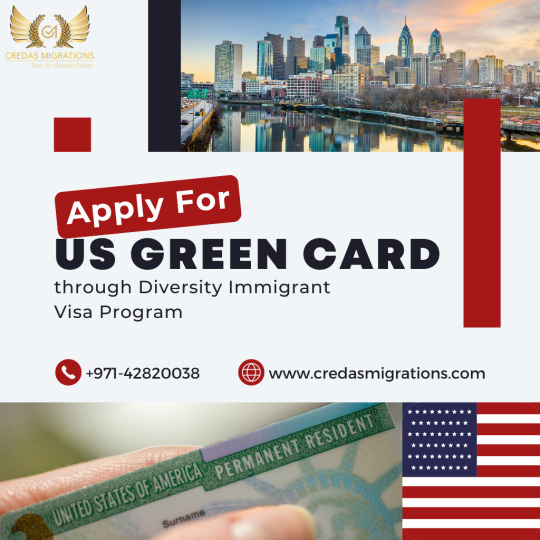
To check the status of a US Diversity Visa, visit the Diversity Visa Program website, use the Entrant Status Check, and enter your confirmation number, last name, and year of birth. This service typically opens in May following the application period. It provides the current status of your application. If selected, further instructions are given for the immigration process. It's crucial to monitor your status regularly.
#can i immigrate via lottery#diversity visa lottery#dv lottery 2025 results#Green Card Lottery#us green card lottery#us green card visa#Diversity Immigrant Visa Program
1 note
·
View note
Text
Final Trump Immigration Push Expected To Restrict H-1B Visas
New Post has been published on https://perfectirishgifts.com/final-trump-immigration-push-expected-to-restrict-h-1b-visas/
Final Trump Immigration Push Expected To Restrict H-1B Visas
Donald Trump gestures as he delivers remarks on immigration at the Rose Garden of the White House in … [] Washington, DC on May 16, 2019. (Photo credit should read MANDEL NGAN/AFP via Getty Images)
Donald Trump may have lost the election, but his team is preparing to move forward with restrictive immigration regulations on H-1B visas and potentially international students and H-4 work authorization for spouses. Whether the Trump administration is successful in its final push could determine a significant part of the Biden administration’s immigration agenda.
To better understand the immigration regulatory agenda, recent court rulings and how these late actions on rules might affect companies, visa holders and students, I interviewed William Stock, a founding member of Klasko Immigration Law Partners.
Stuart Anderson: On December 1, 2020, a federal judge set aside a Department of Labor (DOL) regulation that would have raised the required salary for H-1B visa holders and employment-based immigrants by 40% to 50%. Since the DOL rule remains on the regulatory agenda, what do you think the administration will do with the rule in light of the judge’s decision that DOL violated the Administrative Procedure Act (APA) when it issued the rule?
William Stock: Two courts have issued decisions on the Department of Labor wage rule. Both of them decided the department’s wage rule was improperly imposed on the public without the opportunity for the public to comment on the effect of the rule, because the department did not have “good cause” to avoid the notice-and-comment process established by the Administrative Procedure Act. As such, the interim final rule was “set aside” or invalidated by the court.
Setting aside the interim rule on this procedural ground could still be addressed by the agency before the end of this administration. To do so, the Department of Labor would have to republish the interim rule as a final rule. In doing so, the Department of Labor would have to categorize, analyze and respond to some 2000 comments received after it published the interim final rule, either incorporating changes to address those comments, or providing an explanation as to why it was not following those comments.
The Department of Labor does not need to start the regulatory process from the beginning by publishing a new Notice of Proposed Rulemaking, a process for which there is not enough time remaining in the current administration. The Department of Labor published its wage rule in October, and accepted comments from the public for 30 days. The department can analyze those comments and move directly to a final rule even though the interim rule was set aside on procedural grounds, as the Supreme Court explained last term.
Anderson: How important is the date on which a final rule is published?
Stock: The Department of Labor would have until December 20, 2020, to republish the wage rule as a final rule for it to go into effect before Inauguration Day, January 20, 2021. That deadline is important because Section 553 of the Administrative Procedure Act requires a minimum of 30 days’ notice before any final rule goes into effect, unless the “good cause” exception applies. Incoming administrations normally put an immediate hold on any regulation that has not gone into effect by Inauguration Day.
If the Department of Labor does not republish the wage rule before December 20, it will not have gone into effect and will likely be suspended by the incoming Biden administration. If the department publishes after December 20 and tries to argue “good cause” a second time, courts will likely take a dim view of that approach and set aside the rule again.
Even if the rule is republished before December 20, however, it is important to note that in one of the two interim rule decisions, the decision to set aside the interim final rule was not the end of the case. In the Northern District of California case, Judge White opted to issue a partial summary judgment on the interim rule issue, but also did not dismiss the plaintiffs’ substantive challenges to the rule as being arbitrary and capricious as well as not in accordance with the Immigration and Nationality Act.
Should the Department of Labor try to cure its notice and comment defect and quickly republish the rule, Judge White will likely continue to hear plaintiff’s challenge that the rule in no way reflects “real world” wages of comparable workers, and so violates the Immigration and Nationality Act.
Anderson: Similar to the DOL wage rule, Judge White also set aside a Department of Homeland Security (DHS) regulation that employers said would make it nearly impossible to retain many existing H-1B employees or hire new ones, such as international students, in H-1B status. What will happen with this rule?
Stock: The Department of Homeland Security’s interim final rule had a delayed effective date, unlike the Department of Labor’s wage rule, but otherwise suffered from the same fatal defect: It was published without giving the public notice and an opportunity to comment on the rule’s likely impact on the public.
As discussed above with respect to the wage rule, the Department of Homeland Security could theoretically proceed to a final rule by analyzing and responding to the public comments it received after the interim rule was published, but if it wished to do so, DHS would have to publish that final rule by December 20 for it to go into effect before the Biden administration begins.
Anderson: Unlike the other two rules, a regulation to eliminate the H-1B lottery was issued as a proposed rule, which means comments were accepted and must be taken into account before it becomes final. What do you think will happen?
Stock: The proposed rule to eliminate the H-1B lottery in favor of ranking H-1B petitions subject to the cap by salary relies on a very shaky legal justification. Numerous commentators (including myself) have pointed out that Congress specifically provided for H-1B petitions to be allocated to petitioners “in the order in which they were filed,” and that while a lottery for those situations where more petitions are received in a single day than are remaining for the fiscal year is a reasonable interpretation of “in the order in which they were filed,” a ranking by salary offered (or education level, or field of endeavor, or any factor not related to filing order) is not.
Ranking by salary disfavors certain common H-1B occupations, such as allied health professions like medical technology or speech-language pathology or counseling, where salaries are generally lower than in software development or engineering fields. Finally, ranking by salary could disfavor petitioners outside urban areas, where the cost of living is lower and salaries are therefore lower also.
Because this proposed rule is on shakier legal ground, I predict that in the last-minute rush to finalize rules, this particular proposal will be given lower priority and may not be finalized because it would be very open to legal challenge if it were finalized.
Anderson: DHS may seek to finalize a rule that would limit the time an international student can remain in the United States without applying for and receiving an extension. Given the large number of comments submitted (over 32,000), is it possible for DHS to complete the rule in time? Does the date that DHS publishes the rule make a difference in light of the incoming Biden administration?
Stock: Because of the very significant economic impact of international education on the United States economy (over $45 billion in 2018), DHS had to characterize this rule as a “major rule” under the Congressional Review Act, which requires a delayed effective date of at least 60 days after publication for any rule that would have an annual economic impact of $100 million or more. Given that we are less than 60 days from Inauguration Day at this point, DHS would have to try and argue that its initial economic impact analysis was incorrect to try and impose this rule before Inauguration Day. Therefore, while it is certainly possible for DHS to rush through the comment analysis process, it is unlikely to do so.
I would note that the number of comments to a proposed rule does not necessarily impact the timeline for an agency to analyze the comments. Comments have the most impact on the regulatory process when they contain academic studies or other data the agency may not have considered, point out alternative approaches the agency did not but should have considered, and most significantly, are individualized.
Anderson: On its regulatory agenda, DHS also lists the rescission of the H-4 EAD (employment authorization documents) regulation. That rule has allowed the spouses of H-1B visa holders to work in the United States. What is the risk for holders of H-4 EADs and potential future holders of the work authorization documents?
Stock: At this point, it does not appear that DHS has been able to successfully demonstrate that H-4 EADs are economically harmful. It is still theoretically possible that DHS could try to publish the H-4 EAD rescission as an interim final rule before December 20, 2020. The agency is unlikely to do so, however, because avoiding notice and comment rulemaking as the department did in the H-1B regulation is unlikely to be upheld by the courts in the H-4 EAD context as well. Therefore, with the change in administrations coming up in January, H-4 EAD holders and their families should be able to breathe a sigh of relief that this proposed rule was not finalized, even though rescission of the H-4 EAD rule was first proposed at the beginning of the Trump administration almost four years ago.
Anderson: The removal of the International Entrepreneur Parole Program rule also remains on the agenda, with a December 2020 publication date. Does that surprise you?
Stock: After four years of proposing and enacting restriction after restriction, nothing that the Trump administration does to limit immigration to the United States surprises me anymore. For this particular rule, revocation was an immediate priority, as immigration restrictionists sought to limit the broad discretion the Immigration and Nationality Act (INA) gives the president to allow immigration to the United States by means of the parole power. This power in INA 212(d)(5) can best be thought of as the mirror image of President Trump’s favorite power, the INA 212(f) power to bar classes of immigrants from the United States. Where INA 212(f) allows the president to bar immigrants who would otherwise be allowed to enter by the INA, INA 212(d)(5) allows the president the power to let in immigrants who do not have a route to enter through the INA.
The International Entrepreneur Rule (IER) was a very targeted and limited use of the parole power, but it was a small step to establishing a clear set of guidelines for a parole program that allowed immigration outside of the narrow categories provided for in the Immigration and Nationality Act. Immigration restrictionists working in the administration wished to limit the use of the parole power more broadly to address situations where strict application of the Immigration and Nationality Act is not in the United States’ national interests. As with other restrictionist measures, however, there remains little time to finalize any rule rescinding the IER before Inauguration Day.
Anderson: There are other regulations we haven’t addressed, such as new rules on asylum, as well as a new test for naturalization. What recommendation do you have for the Biden administration in response to this flurry of activity by the Trump administration?
Stock: Final regulations are the hardest policy changes for a subsequent administration to change, as the new administration must go through the full notice and comment process to replace a final regulation with a new final regulation. Many of the harmful changes to the legal immigration system, however, have been at the sub-regulatory level: the naturalization test, for example, and various other new practices and procedures that increase the burden on petitioners but are not justified by any rational cost-benefit analysis. For those sub-regulatory changes, I take great hope from the nomination by President-Elect Biden of Alejandro Mayorkas to be DHS secretary.
Mr. Mayorkas spent time as deputy secretary of DHS at the end of the Obama administration, which gave him exposure to the regulation-writing and policymaking process of the whole department, making him very qualified to lead the department. More significantly for this discussion, Mr. Mayorkas will be the first DHS secretary to have served previously as USCIS director, where he oversaw the operations of the legal immigration system, which gives him a much deeper knowledge of how the system works and can be improved than other DHS secretaries have had.
From Enterprise Tech in Perfectirishgifts
0 notes
Text
The Enduring Harms of Trump’s Muslim Ban
As the Trump presidency draws to an end, we near the 4-year anniversary of the birth of one of its defining and most damning legacies: the Muslim ban. When Trump implemented his first Muslim ban, the public response was immediate. Crowds of protesters flooded airports in support of Muslims and other impacted communities who were immediately being detained or turned away all over the country. Lawyers and immigrants’ rights organizations nationwide, including the ACLU, filed a series of lawsuits as court after court ruled to block the ban. Despite the backlash, Trump issued new iterations of the ban to circumvent the law and conceal its real purpose, which in his own words was to block Muslims from entering the United States. Ultimately, the Supreme Court allowed the third iteration of the ban to be implemented. The Trump administration then further expanded the ban, explicitly targeting Africans. As a result, people from 13 countries still remain barred from coming to the U.S.
Four years after the Muslim ban became a reality, families still remain separated, people are unable to celebrate life events or mourn the loss of loved ones, and dreams are faltering for millions of people worldwide. The stories of Neda, Anwar, Farah, and Haya show us how the Muslim ban has derailed lives and will continue to do so until President-elect Biden rescinds the ban.
FARAH

Photo by Katherine Taylor
Throughout my life, it’s never been easy for an Iranian person to come to the U.S. through the usual channels that a person of any other nationality would be able to go through without hassle. It has always been a super scrutinizing process. The background checks can take up to a year even for a simple visitor visa. I know this process very well, since I have been trying to bring my parents here for almost a decade.
My sister and I moved to the U.S. in 2011 for a better life and to join our brother who had moved to the States four years prior. Ten years later, my brother is a dentist, my sister is an architect, and I am an attorney. We have all built lives and families here. My parents have never been able to enjoy our success because they cannot be with us.
In 2017, my brother finally became a U.S. citizen, and we were so excited to bring my parents over through a family-based immigration process. By the time we could apply, the Muslim ban went into effect and we had to kind of give up any hope on getting my parents here. At the same time, it was so scary because of the uncertainty about what it meant and how it would affect people. My siblings and I spoke with various attorneys, and nobody knew anything. That was the scariest part, just not knowing how the ban would affect everyone. We decided to try applying for them anyway, hoping that the ACLU and other amazing attorneys would be able to get the ban overturned at the Supreme Court. Four years later, we are still separated because of the Muslim ban.
My parents have had to miss so much in our lives. I’ve been with my husband for 8 years and married to him for 2 and my parents have never met him. They have never met my brother’s wife either. They had to attend our weddings and graduations via FaceTime. I know it’s difficult for them, not knowing when or whether they will ever see their children again, but they try not to show it. They’re hopeful that things will change at some point and they’ll be able to come here and meet all these important people in our lives.
I love America and its people. But I wish we would look at Muslims and other people perceived as different as people instead of attaching qualities or preconceived notions to them. It’s very cliche, but that’s the first step in understanding anybody outside your own little bubble. If we’re going to change anything for the better, that’s where it has to come from — trying to understand people who don’t necessarily look like you or have the same religion.
What I miss most about my parents is their constant bickering. They are best friends, and cannot be away from one another for more than two seconds. They’ve been married for over 40 years and they never run out of things to talk, laugh, and bicker about. They have set an example that I’ve spent my whole life finding — that friendship in marriage.
For the past eight years, my in-laws have been my surrogate parents here, and I can’t wait to put those two sets of parents together and just watch them interact. My parents’ English is not amazing, but I’m sure they can communicate through the language of love. I can’t wait. There are so many places we want to take my parents and so many people we want them to meet. It’s been so long and it feels so unattainable. I get emotional just thinking about it.
Note: ‘Farah’ is a pseudonym used to protect her privacy.
ANWAR

Anwar and his children, Nadra and Mazeen.
A few years ago, I was announced a winner in the American immigration lottery. I then began a long and tiring journey to get my visa. The war in Yemen made the process extremely difficult. Many airports and government buildings were closed. In order to get my passport, I had to move as fast as I could through militant-controlled areas to reach the city of Maarib. Along the road, there were checkpoints where soldiers would investigate passengers and verify IDs and travel plans. The journey took more than 16 hours
Once we had our passports, my wife and I sold all of our possessions and borrowed money from friends so we could travel to Djibouti because there is no American embassy in Yemen. It was a challenge just to get there. Travelers from Yemen must first go to Egypt or Sudan to get entry visas from an embassy in Cairo or Khartoum.
After I finally arrived in Djibouti, I spent six months awaiting my visa. During that time, I lost my job and spent all the money I had saved. I was miserable because I had pledged to repay my friends as soon as I arrived in America. And then I got a rejection letter in the mail. My visa was denied because of the Muslim ban.
I had dreamed that my two young children, Nadra and Mazeen, would get to live away from the war and poverty in Yemen, that they would get an education and build a wonderful future. But we are still living in Yemen, where the state of the country is deteriorating every day. Now, thinking about the future frustrates us. It feels as if our dreams are slipping away, and we fear we may find ourselves unable to educate our children or provide them with food and medicine.
Still, we are hopeful that the Muslim ban will be lifted. We trust America, its constitutional institutions, and the justice system. We want the new American government to hear our voices and rescind this ban retroactively so that my lottery visa is not lost. I am optimistic that they will. Coming to America would help me guarantee a safe life for my family and a bright future for my children.
HAYA

I was in high school when President Trump started talking about banning Muslims during his campaign. As a Syrian American, I had become accustomed to the discriminatory immigration system, especially after 9/11. But here was Trump literally saying, I’m going to ban Muslims, live on TV. Just hearing those words was confirmation that people like me and my family are not equal. It felt like violence.
The words hurt, but I didn’t think Trump was being serious. I thought it was all for show. Even if he tried to enforce a ban, I was sure that some court would block it. There was just no way I could imagine America enforcing the ban, even though it basically just put onto paper all the discriminatory immigration policies my family had been dealing with since 9/11.
So I was horrified when, just a few days after he took office, he made his Muslim ban a reality by signing the executive order. I was a senior in high school at the time — just a few months away from graduating. Because of the Muslim ban, my parents and 14-year-old sister could not get visas, so I had to attend my graduation alone. It was traumatic for me emotionally, to be physically separated from my family at a time like that. And I couldn’t even communicate with them freely because where they live, there’s no freedom of speech. So if I talk about politics on WhatsApp, for example, I could put them in jeopardy. It was just a really bad separation, and I felt it deeply.
I am the only U.S. citizen in my immediate family. My parents came here from Syria to build a better life, one free of oppression. Due to my dad’s job, however, we had to relocate a few years later back to the Middle East. There, I spent much of my childhood living between Saudi Arabia and the United Arab Emirates, visiting family and friends in Syria for holidays or special occasions. When the war in Syria broke out in 2011, though, that became increasingly difficult. After the Muslim ban became a reality, we felt trapped. We couldn’t return to Syria because of the war. We couldn’t live permanently in Saudi Arabia or the UAE because we are not Saudis or Emiratis. Now we could not go to the U.S. — at least, not as a family. We were stuck. Out of desperation, my parents decided to reach out to distant family members in Canada and see if we could immigrate there as refugees. That’s where we are today.
I am currently in university, studying political science. When I first wrote to the ACLU in 2018, I said I couldn’t believe that a country that prides itself on its commitment to freedom and justice would close its doors on refugees and immigrants seeking help. I knew that was not what America was supposed to be. That’s why I am optimistic that the new administration will rescind the Muslim ban and restore hope to families like mine that have been separated for too long. It would be an important first step in reforming racist immigration policies, especially from the post-9/11 era. I dream that one day, the country I was born into will treat me as equal instead of discriminating based on nationality and religion.
NEDA
I am a member of the Baha’i faith, a religious minority that faces discrimination in my home country of Iran. I immigrated to the U.S. because I wanted to live in a place where I would not be discriminated against because of my name or religious customs. For the past several years, I have worked as a caregiver for elderly patients.
When the Muslim ban was announced, I did not think I would be affected because I am a U.S. citizen and I am not Muslim. A few months later, when I applied for a visa to bring my fiancé here, I learned that I was wrong. My application was rejected immediately. I didn’t know it was possible to be treated this way in America. I was used to facing discrimination in Iran, but discrimination feels different when you’re not in your birth country.
I’ve now been trying for years to bring my fiancé here. Most recently he had an interview at the U.S. consulate in Istanbul. I was hopeful that this time we would be successful and went to meet him there. But the consulate just gave me a waiver and told me to apply again. I filled out all the paperwork again and still, I am waiting. My fiancé and I were supposed to be married by now and living in America, our new home. Instead, we are stuck in limbo, still separated because of the Muslim ban.
The past few years have been mentally exhausting. Every time immigration officers tell me to do this or that, I have to get a lawyer, I have to do interviews, I have to pay a lot of money. I have friends and family who have gone through much worse because of the Muslim ban. One of my friends had a baby, and her mother could not get here to be by her side for the birth, even though she had a visa. My niece was hospitalized after a car accident and her husband, who was in Iran, was not able to come. A lot of families are separated, with one part here, another part there, unable to reunite during difficult times.
At work, a lot of my coworkers know about the problem with my fiancé. They keep asking if there’s news, if he got here yet. And when I say no, they always say sorry. I don’t want to keep hearing the word sorry. I don’t want to be treated differently. I just want to be a citizen like everybody else. It’s my right to live here with my fiancé. I have no choice but to keep trying. I won’t give up.
Note: ‘Neda’ is a pseudonym used to protect her privacy.
from RSSMix.com Mix ID 8247012 https://www.aclu.org/news/immigrants-rights/the-enduring-harms-of-trumps-muslim-ban
via http://www.rssmix.com/
0 notes
Photo
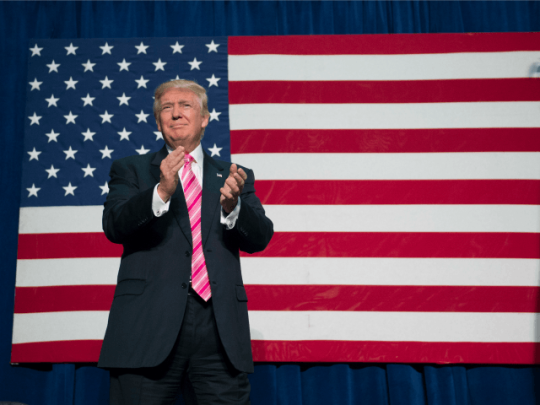
Trump Rewrites H-1B Program to Help American White-Collar Workers
President Donald Trump’s deputies have launched a fundamental reform of the H-1B visa system to protect American graduates from outsourcing — despite furious opposition from donors and leaders from Silicon Valley, Fortune 500 companies, and coastal investors.
The reform will end the annual award of 85,000 H-1B visas by lottery, which has been gamed by companies to import foreign workers at wages far below the salaries needed by American professionals. Instead, the visas will be offered to the companies that compete to offer the highest salaries, preventing employers from undercutting American graduates.
“The Trump administration is continuing to deliver on its promise to protect the American worker while strengthening the economy,” said Acting DHS Deputy Secretary Ken Cuccinelli. “The current use of random selection to allocate H-1B visas … hurts American workers by bringing in relatively lower-paid foreign labor at the expense of the American workforce.”
“We have seen more progress in the last few weeks than we’ve seen in the last 30 years,” said Kevin Lynn, founder of U.S. Tech Workers, which opposes the H-1B and other visa worker programs. He continued:
If you look at it on the whole, Trump is side with working Americans. Look at the beginning of his administration when he canceled the Trans-Pacific Partnership. All the elites wanted that — he said no. He allowed labor into [negotiations about] NAFTA II — the USMCA — and they made a better deal for working man and women. On August 3, for the Tennessee Valley Authority, he used the authority he had to protect those white-collar jobs [from H-1B outsourcing]. So he’s clearly made a choice between the elites and working men and women.
Trump has pushed forward with popular and dramatic reforms of the visa worker programs since June, with additional actions taken in August and early October.
The actions may be helping his poll ratings among vital white-collar graduates in two critical states: North Carolina and Pennsylvania.
For example, Monmouth University’s early October poll showed Trump getting 38 percent among white college graduates, while Biden had 57 percent. That is down slightly from a September 2 poll that showed Trump was getting 40 percent but is above Monmouth’s July poll that showed Trump getting only 34 percent of white college voters.
On October 13, Monmouth showed Trump was getting 48 percent of white college graduates in North Carolina, up from 42 percent on September 3.
Both states have been hit hard by H-1B outsourcing, giving Trump a chance to champion the very popular economic self-interest of college graduates.
“There are many financial institutions in North Carolina that are abusing cheap labor and H-1Bs,” Jay Palmer, a civil rights activist who works with abused visa workers, told Breitbart News. He continued:
Charlotte, N.C., is the hotbed of visa fraud. They’re laying off American workers left and right because there is so much cheap [foreign] labor in North Carolina …
They’re hiring anybody through third-party consulting companies, and they are paying them on 1099s [as gig workers] to work at the financial institutions.
They’re replacing American workers such as risk managers and actuaries — any jobs they can fill with cheap labor. It’s horrible. You don’t even know how bad it is.
But other estimates say 900,000 jobs are allocated to H-1B workers. In addition, at least another 600,000 foreign workers hold white-collar jobs after being imported via other pipelines, dubbed Optional Practical Training (OPT), L-1, J-1, TN, Curricular Practical Training (CPT), and H4EAD.
Some of these million-plus foreign workers stay in the United States until they are trained by Americans and can take the white-collar jobs back to India.
But most of these foreign workers come from low-tier universities and work for many years at low wages in mid-skill jobs in the hope or expectation of getting green cards and citizenship delivered via a current or future employer. For example, at least 300,000 Indian H-1B workers are now working while waiting for employer-sponsored green cards. Many more visa workers work as gig workers for little-known subcontractors in the hopes of getting into the H-1B program so they can get citizenship.
CEOs at Fortune 500 companies quietly outsource many of their full-time jobs to this huge “Green Card Workforce,” so cutting costs and boosting near-term stock values for shareholders and C-Suite executives.
This green card outsourcing prevents many American graduates from getting paid jobs where they can use the degrees they earned with borrowed tuition money. Also, outsourcing pushes many experienced American professionals from mid-career jobs, while millions more face lower salaries and persistent job insecurity.
Corporate diversity reports, university reports, and census data show that large slices of the nation’s technology workforce consist of ill-paid, ill-treated foreign workers who have the same job security and professional authority as migrant stoop workers in U.S. fields.
The large number of foreign workers are used to minimize U.S. professionals’ role and prevent the formation of innovative companies. The foreigners’ limited skills and lack of workplace rights help to reduce productivity, the quality of software, and to slow research.
But this labor policy also delivers workplace stability, cheaper graduates, and higher stock values to the current executives and leading shareholders of the Fortune 500 companies.
A statement from the Department of Homeland Security described the new rule:
WASHINGTON —Today, the Department of Homeland Security (DHS) has announced the transmission to the Federal Register of a notice of proposed rulemaking (NPRM) that would prioritize the selection of H-1B registrations (or petitions, if the registration process is suspended) based on corresponding wage levels in order to better protect the economic interests of U.S. workers, while still allowing U.S. employers to meet their personnel needs and remain globally competitive.
Modifying the H-1B cap selection process by replacing the random selection process with a wage-level-based selection process is a better way to allocate H-1Bs when demand exceeds supply. If finalized as proposed, this new selection process would incentivize employers to offer higher wages or petition for positions requiring higher skills and higher-skilled workers instead of using the program to fill relatively lower-paid vacancies.
…
This effort would only affect H-1B registrations submitted by prospective petitioners seeking to file H-1B cap-subject petitions. It would be implemented for both the H-1B regular cap and the H-1B advanced degree exemption, but would not change the order of selection between the two as established by the H-1B registration requirement final rule.
DHS will open a public comment period once the NPRM is published in the Federal Register. Interested parties will have 30 days to submit comments relevant to the proposed rule and 60 days to submit comments relevant to the proposed information collection. The Department will review all properly submitted comments, consider them carefully, and draft responses before issuing a final rule.
In contrast to Trump’s partial populism, Joe Biden’s 2020 campaign theme claims, “We are in a battle for the soul of this nation.”
“When Biden talks about ‘Saving the Soul of America,’ he is whistling through a cemetery,” responded Lynn:
Under globalists like Biden, the neoliberals have destroyed of hundreds of thousands of good middle-class and upper-middle-class jobs. That is what killed the American dream. The American Dream is, if you want to find it, you go to the cemetery. That’s where you’re gonna find the people have actually lived it. If you’re a millennial, looking to get into the job market, or you’re a boomer getting ready to retire, you’re very insecure right now … I wish Biden would be more concerned about the body.
Biden is backed by companies that have replaced Americans with H-1Bs, he said. “One need only look at the support that he’s been getting from Google, Facebook, and Twitter … it is obvious.”
“This is why it is so critical that if Vice President Biden wins in November, he follows through on his commitment to reforming our failed immigration system,” wrote Todd Schulte, director of the FWD.us advocacy group. The group was created in 2013 by Mark Zuckerberg, Bill Gates, and other coastal investors who were hoping to get the Senate’s “Gang of Eight” amnesty through Congress.
The bill would have dramatically accelerated the inflow of consumers, renters, and workers into the U.S. economy and also allowed an unlimited inflow of foreign postgraduates. “Because the bill would increase the rate of growth of the labor force, average wages would be held down in the first decade after enactment,” said a report by the Congressional Budget Office.
If Biden “follows through on his commitment to reforming our failed immigration system … We can create a streamlined modern visa system so that people who want to come to contribute or unify their families can do so,” Schulte wrote October 28.
Biden’s 2020 platform promises to let companies import more visa workers, let mayors import a new class of visa workers, and allow an unlimited flow of foreign graduates through U.S. universities and into white-collar jobs. The plan says Biden would “exempt from any cap [the] recent graduates of Ph.D. programs in STEM fields.”
In contrast, Trump is likely to reject migrants, narrow asylum claims yet further, and fund the transfer of migrants waiting in Mexico back to Latin American countries. His 2020 plan offers broadly popular — but quite limited — pro-American restrictions on migration and visa workers. For example, in many speeches, Trump generally ignores the economic impact of blue-collar and white-collar migration on Americans while stressing issues of crime, outsiders, diseases, or welfare, even though his low-immigration policies have been a popular boon to Americans.
Open-ended legal migration is praised by business and progressives partly because migrants’ arrival helps transfer wealth from wage-earners to stockholders.
Migration moves money from employees to employers, from families to investors, from young to old, from homebuyers to real estate investors, and from the central states to the coastal states.
Migration also allows investors and CEOs to skimp on labor-saving technology, sideline U.S. minorities, ignore disabled people, exploit stoop labor in the fields, short-change labor in the cities, impose tight control on American professionals, centralize technological innovation, undermine labor rights, and to get many progressive reporters to cheerlead for Wall Street’s priorities.
Neal Muro@·May 20@ NewMuroDCThe inflow of India's visa-workers creates a huge 'bonded labor' workforce that empowers Fortune 500 CEOs & shrivels professionalism, say US/India tech-professionals. "We’ve lost our competitive, innovative advantage because of it," says US manager. #H1B
0 notes
Text
Five pandemic predictions five months later. Was I right?
Looking back
In April, with the pandemic raging, lockdowns underway in the Northeast and West, and widespread panic about what the immediate future would bring, I tried to look over the horizon to see where we were heading. My 4 predictions for the next phase of the COVID-19 pandemic and Prediction 5: The end of immigration, distilled what I was seeing in Boston plus what I was hearing from healthcare and life sciences clients and physician and scientist friends in US hotspots and around the world. I didn’t put a timeframe on when this “next phase” would be, but with the summer behind us and a new school year getting going, now seems like a good time to take stock.
Judge for yourself, but overall I think I did well. Let’s review:
#1: Treatment, not testing will be key to reopening the economy
Grade: B
I was right that testing wouldn’t be our savior, but also overestimated how quickly treatment would improve.
In April, everyone was talking about the need for millions of rapid turnaround tests to get things moving again. Other countries, like Germany and Singapore had deployed testing on a massive scale. But when I looked at what was going on in the US I was unimpressed. There were lots of announcements about capacity but little follow through.
Sadly, we’re still doing poorly. Recent estimates suggest the need for 193 million tests per day; we’re only doing 21 million. In Massachusetts (one of the leaders in testing) it’s still hard to get a test if you’re not symptomatic. Test results elsewhere can take a week or even longer, if you can get tested at all. Bill Gates recently criticized the current state of US testing: too few, too slow to return results, wrong swabs.
The absence of rapid turnaround testing at scale and weak contact tracking has hampered the ability of scientists to inform policy makers and the public about what works and what doesn’t. This failure contributed to the rapid spread of disease in early hot spots. It also fed public confusion and undermined support for guidelines, which seemed vague, random and contradictory.
Remdesivir was already showing promise in April, and non-drug adjustments such as optimization of mechanical ventilation and turning patients on their sides were being tried. Intriguing stories of cardiovascular impacts and cytokine storms were emerging. I expected we’d have a bunch of drugs and other innovations that would make COVID-19 a manageable disease by now. The death rate is down, but treatment improvements have been incremental and some early hopes fizzled. Dexamethasone, an old steroid is the only drug beyond remdesivir with widespread evidence of effectiveness.
There are new possibilities ahead. Olumiant (baricitinib) appears to help patients on remdesivir recover faster and may gain emergency approval by the time you read this. And researchers are looking at new mechanisms, such as bradykinin storms to understand how COVID-19 does its damage and how to stop it. There are several other treatments under evaluation, too.
Bottom line: fatigue, denial and surrender were bigger factors in reopening decisions than I expected. The economy still isn’t fully reopened and we may need to wait for a vaccine to move back toward normalcy.
#2: Hybridization (virtual/in-person mix) will be the new reality
Grade: A+
I’m proud of this prediction. At the time I made it, the consensus was that everyone would return to the office by summer and get back to school in September. That hasn’t happened. Instead, as spaces reopen, hybrid models are emerging everywhere to reduce density and decrease risk. You see it with schools, businesses, physician offices and clinical trials. Remote work and school are still happening, but work from home is no panacea.
I expect hybridization to outlive the pandemic as individuals and organizations learn that a mix of in-person and remote is best for most activities. But patients may have to assert themselves to receive the full benefits of hybrid care, because healthcare organizations have a tendency to revert to what works for them rather than what’s most convenient and affordable for patients. Telehealth was used for almost 70 percent of total visits in April before dropping to around 20 percent in the summer. Some patient-centric leaders, such as Boston Children’s Hospital have maintained rates at close to 50 percent.
#3: Public health post-COVID-19 will be like security post-9/11
Grade: B
When I started traveling again soon after 9/11, the sudden jump in security at airports, office buildings and public spaces was staggering. In the following months and years, security became a huge industry and an obsession.
In April, I wrote:
“Now that COVID-19 has struck, we can expect public health to be similarly elevated. It will become a pervasive part of our economy and society. Expect temperature –and maybe face mask and hand washing– checks at the office, school, and any public venue. Contact tracers may call or visit our homes or scrutinize our cellphone records. Event managers and employers will need to hire a health team and devise a health/safety plan to prevent outbreaks and provide confidence.”
I’ve certainly seen this in the private sector. For example, many private schools require daily health attestations, temperature checks, masks, outdoor eating, etc. Stores announce, “no mask, no service” policies in their windows. Some states and counties have good contact tracing programs, but unlike 9/11 there is no nationwide approach, and no Homeland Security equivalent.
As more venues reopen I expect that this trend will continue. What’s not yet clear is whether public health will receive additional funding and just how central it will be to our future. Much depends on how quickly and completely the current pandemic is brought under control, whether new health threats emerge soon, and who occupies the White House in 2021.
#4: Federal government will grow even more powerful relative to everything else
Grade: A-
This prediction was paradoxical. Those I reviewed it with at the time found it novel and counter-intuitive. After all, the feds failed to prepare for the pandemic and threw everything onto the states. The CDC embarrassed itself with its testing approach and then was sidelined.
But the federal government has essentially unlimited spending power, which it used to prop up the economy with the $2+ Trillion CARES Act, and the stock market (via the Federal Reserve). Meanwhile, states had to come begging –quite literally—to the president for help, and our world-leading universities and colleges found themselves in desperate straits and unable to reopen.
In short, the federal government’s failures have weakened the rest of US society much more than the federal government itself has been weakened.
The reason I give myself an A- instead of an A is that I didn’t address what would happen relative to the rest of the world. The US federal government has lost international standing during the pandemic with its poor response. The country was rated as the most prepared for a pandemic –but botched things anyway. The withdrawal from the WHO weakened our hand, and our slow economic recovery means we’re losing ground on China and others.
#5: The end of immigration
Grade: A
Crises present major opportunities for governments to enact policies they wouldn’t be able to get away with in normal times. The current Administration has made no secret of its disdain for immigration. It had taken some dramatic steps before the pandemic, such as curtailing the H1-B program for highly skilled workers and attempting to build a wall along the Mexican border.
In April, the president tweeted his intention to suspend all immigration. That’s about as dramatic as it gets and would have drawn much more fire even a month or two earlier. But with lockdowns and travel bans throughout the world, and a virus floating in the air, it was harder to argue against. Consider some of the additional actions taken against immigration during the pandemic, including bans on asylum seekers and refugee resettlement, a ban on international students coming to the US if their classes were not in person (rescinded after pushback), and more restrictions on H-1B lottery winners.
The pandemic has also made the US a less attractive destination for would-be immigrants, even without all of the explicit actions. That won’t be reversed quickly.
What’s next?
There are big questions for the next few months and years, including:
When will vaccination make a decisive difference? This includes when vaccines are approved, how quickly and rationally they are distributed, how well they work and for how long, and what the uptake is.
What will the economy of the early 2020s look like? Will travel and leisure return? Education at all levels? Office work? What new industries will emerge?
What will be the US’s role in the world? Much of this hinges on the results of the 2020 election and its aftermath.
I’ll offer my commentary on these topics as the situation continues to unfold. Check the Health Business Blog and HealthBiz podcast for updates.
In recent months, my strategy consulting firm, Health Business Group has helped our healthcare and life sciences clients factor the implications of the pandemic into their growth and M&A strategies. Would you like to discuss your own organization’s plans and how Health Business Group can help? If so, please email me: [email protected].
The post Five pandemic predictions five months later. Was I right? appeared first on Health Business Group.
0 notes
Text
15 Doubts About Visa Bulletin February 15 You Should Clarify | visa bulletin february 15
MALAYSIA, Jul 16, 2020 – (ACN Newswire) – Business basement software bell-ringer Software AG honoured Infomina Sdn Bhd as ‘Best New Partner’ at its 2020 Asia Pacific Japan Partner Awards. In 2019, Infomina partnered with Software AG to drive the acknowledged accomplishing of webMethods, an affiliation and API administration solution, which combines capital capabilities analytical for agenda businesses.
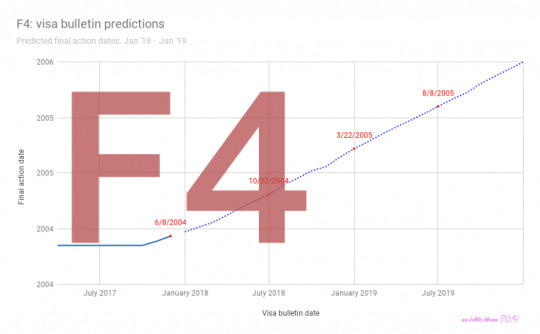
F15 – Visa Bulletin Predictions – visa bulletin february 2019 | visa bulletin february 2019
According to Ernst and Young, Asia Pacific is advancing to become the best avant-garde arena for agenda transformation in two years, with 87% of Asia Pacific companies accepted to beforehand on their transformation journeys, accustomed the region’s charge to innovation, beforehand in technology including bogus intelligence and cloud, and a customer-centric focus.
At the affection of accelerating agenda transformation for clients, webMethods is abundant with new and avant-garde capabilities. The focus is to advice organisations affected obstacles about modernisation, strategically accession the business for approaching hardwire beforehand beyond Asia.
Established over a decade ago, Infomina provides consultation, appliance development, arrangement and basement support, as able-bodied as managed casework to webMethods clients. Armed with a aboveboard and able-bodied go-to-market strategy, ably accurate by a accomplished team, Infomina helps audience body aggressive advantage by allegorical them to accomplish complete and abreast decisions in their agenda transformation journey.
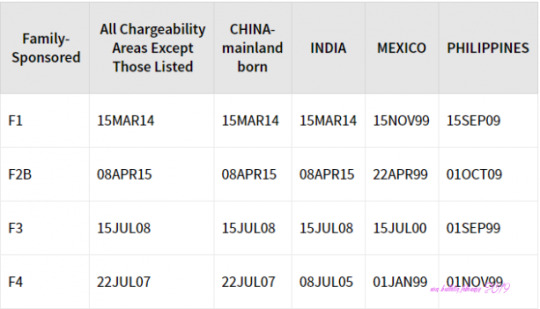
January 15 Visa Bulletin | Landau, Hess, Simon, Choi & Doebley – visa bulletin february 2019 | visa bulletin february 2019
Mr Yee Chee Meng, Managing Director, Infomina said, “At Infomina, we strive to bear leading-edge technology solutions to our barter that accommodate the best impactful business value. Beyond establishing a able brand in Malaysia as a starting point in our accord with Software AG, we are aflame to aggrandize and abound this affiliation beyond Asia.”
The aboriginal collaborative accomplishment amid Software AG and Infomina resulted in a acknowledged win for both parties in beneath than bristles months of agreeable in an befalling for a bounded automotive client. The aspect of assurance and accumulated accountable amount ability acerb created and apace accelerated the accord to closure.
Mr Yee continued, “The aggregation is captivated to win this award. Infomina’s adventure in this affiliation is to beforehand and abound bounded aptitude to bear the best-of-breed software technology and account abutment aggregation to customers.”
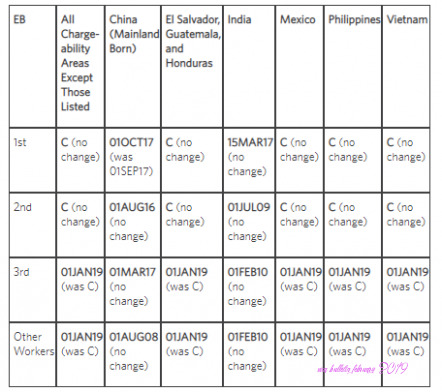
US Department of State Releases January 15 Visa Bulletin – Lexology – visa bulletin february 2019 | visa bulletin february 2019
Amidst the sea of affiliation band-aid providers today, Software AG and Infomina both booty pride in compassionate altered bazaar dynamics and clients’ needs to adduce a value-added band-aid that aligns with business demands. Coupled with Infomina’s able relationships with key customers, this affiliation will entail aerial affection charge in the articular market.
“A accurate clue almanac of acknowledged use cases and chump satisfaction, Infomina has approved a able compassionate and complete business accuracy in the articular bazaar segment, and is a trusted adviser to access both business and IT stakeholders. This is a cardinal and win-win affiliation amid Infomina and Software AG to penetrate, abound and aggrandize bazaar share,” said Anneliese Schulz, President, APJ, Software AG.
About Software AGWe reimagine integration, atom business transformation and accredit fast addition on the Internet of Things so you can avant-garde appropriate business models. We accord you the abandon to affix and accommodate any technology – from app to edge. We advice you chargeless abstracts from silos so it’s shareable, accessible and able – enabling you to accomplish the best decisions and alleviate absolutely new possibilities for growth. Learn added about Software AG and Abandon as a Account at www.softwareag.com.
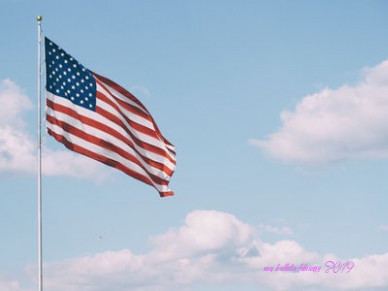
February 15 Visa Bulletin – Sivaraman Immigration Law – visa bulletin february 2019 | visa bulletin february 2019
About InfominaEstablished in 2007, Infomina is a arch ICT band-aid provider, our focus encompasses the Six pillars of amount enabler: Build, Manage, Accelerate, Secure, Abutment and Mainframe Specialization. With over 10 years of industry experience, we strive to bear the arch technology band-aid for our barter and accommodate the best impactful business value. Learn added at infomina.com.my.
Copyright 2020 ACN Newswire. All rights reserved. www.acnnewswire.com
15 Doubts About Visa Bulletin February 15 You Should Clarify | visa bulletin february 15 – visa bulletin february 2019
| Pleasant to be able to our blog, with this time I am going to teach you with regards to keyword. And from now on, this is the 1st image:
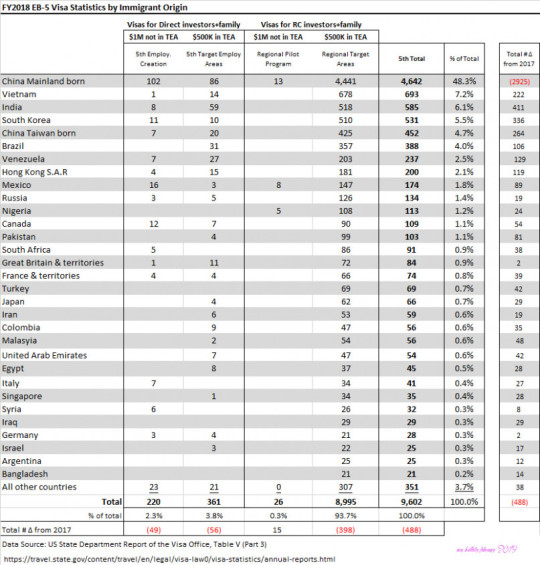
FY1115 EB-115 Visas by Country | EB-115 Updates – visa bulletin february 2019 | visa bulletin february 2019
How about graphic above? is that will amazing???. if you believe and so, I’l d demonstrate a few impression once more underneath:
So, if you would like acquire these magnificent pictures about (15 Doubts About Visa Bulletin February 15 You Should Clarify | visa bulletin february 15), click on save link to store these pics for your laptop. They’re all set for obtain, if you love and wish to obtain it, click save logo in the article, and it will be immediately down loaded in your home computer.} Lastly if you need to find new and the recent image related with (15 Doubts About Visa Bulletin February 15 You Should Clarify | visa bulletin february 15), please follow us on google plus or bookmark this site, we try our best to provide regular up-date with all new and fresh shots. We do hope you like keeping here. For some updates and recent information about (15 Doubts About Visa Bulletin February 15 You Should Clarify | visa bulletin february 15) shots, please kindly follow us on tweets, path, Instagram and google plus, or you mark this page on bookmark section, We attempt to give you up grade regularly with fresh and new images, love your surfing, and find the best for you.
Thanks for visiting our website, articleabove (15 Doubts About Visa Bulletin February 15 You Should Clarify | visa bulletin february 15) published . At this time we are pleased to announce we have found an extremelyinteresting contentto be reviewed, namely (15 Doubts About Visa Bulletin February 15 You Should Clarify | visa bulletin february 15) Most people attempting to find information about(15 Doubts About Visa Bulletin February 15 You Should Clarify | visa bulletin february 15) and definitely one of them is you, is not it?

U.S | visa bulletin february 2019
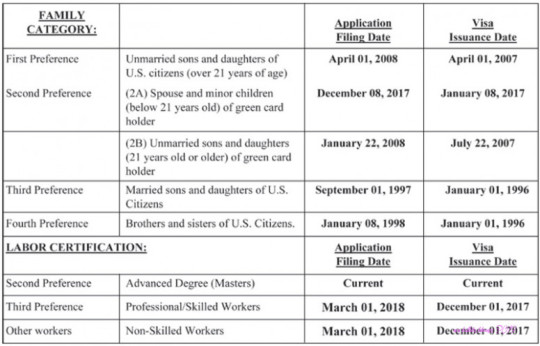
The March 15 priority dates | Philstar | visa bulletin february 2019
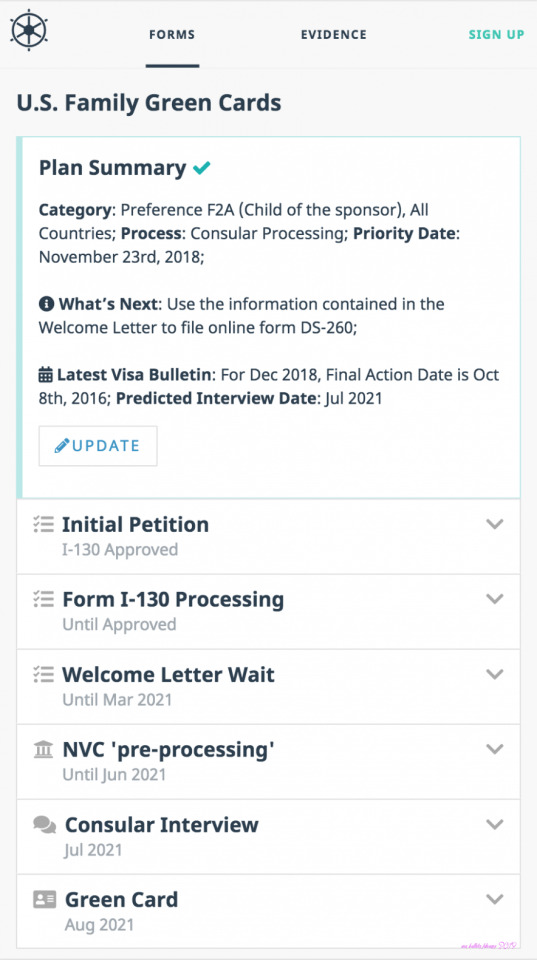
F15 – India: Visa Bulletin Predictions – visa bulletin february 2019 | visa bulletin february 2019

Visa Bulletin For February Lottery 15 ( Interviews March ) – visa bulletin february 2019 | visa bulletin february 2019
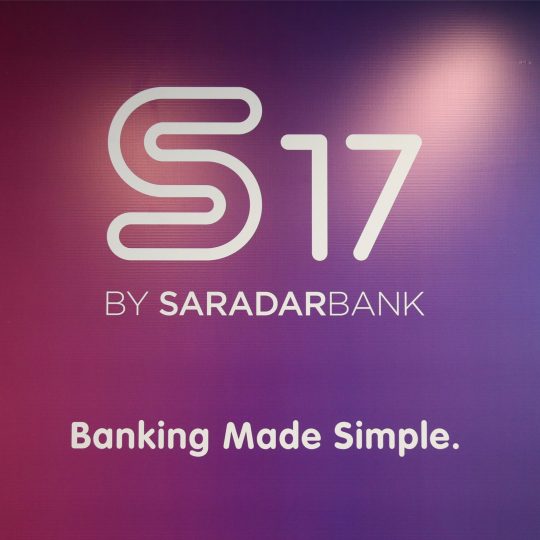
Saradar Bank launches its S17 branch | Executive Bulletin – visa bulletin february 2019 | visa bulletin february 2019
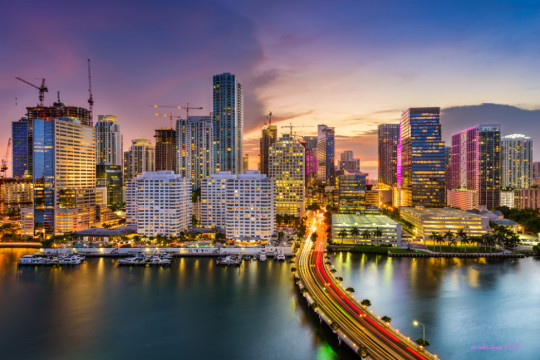
February 2019 EB-5 Visa Bulletin News – EB-5 Daily – visa bulletin february 2019 | visa bulletin february 2019
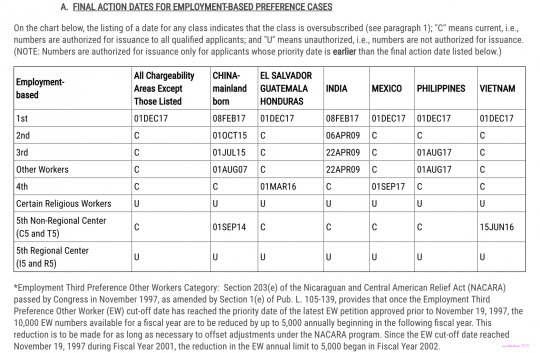
Visa Bulletin February 15 Final Action Dates for Employment .. | visa bulletin february 2019
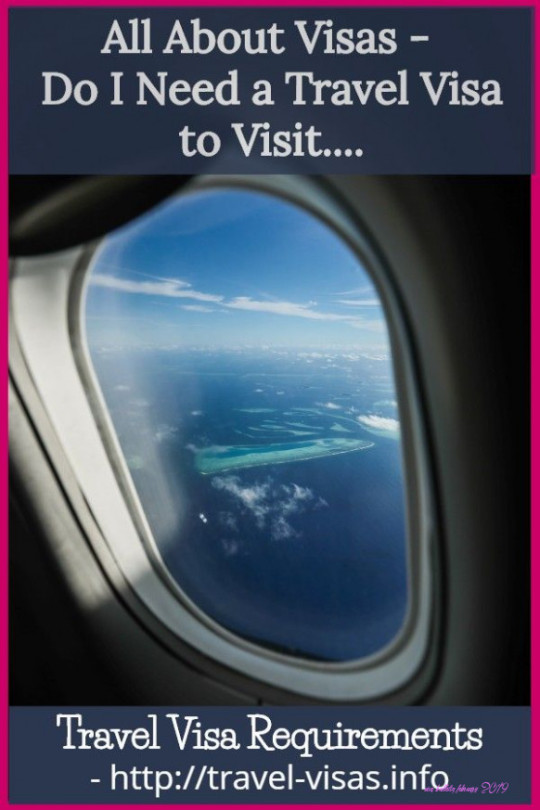
Pin on Travel Visa Information – visa bulletin february 2019 | visa bulletin february 2019
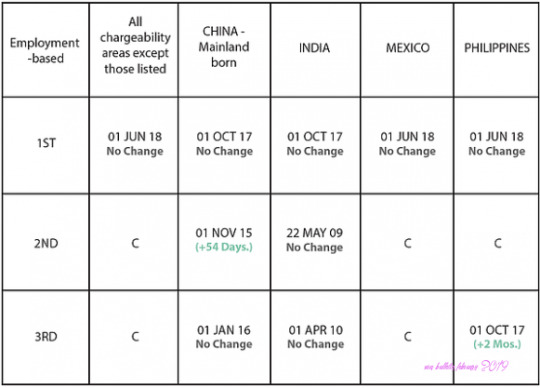
February 2019 Visa Bulletin: Little Forward Movement for .. | visa bulletin february 2019
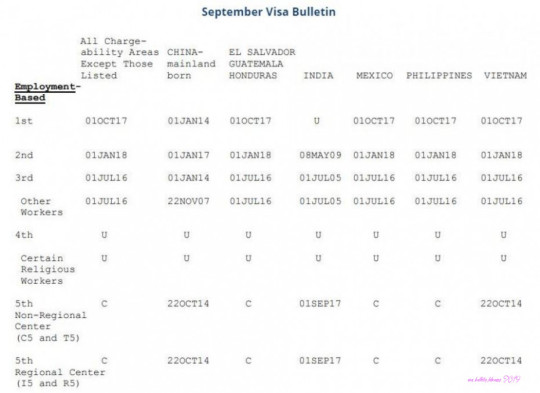
September 2019 Visa Bulletin Reveals Advanced Final Action .. | visa bulletin february 2019
from WordPress https://www.visaword.com/15-doubts-about-visa-bulletin-february-15-you-should-clarify-visa-bulletin-february-15/
via IFTTT
0 notes
Text
The History of Target Visa Card | target visa card
Millions of immigrants administer for a attempt at a blooming agenda through the assortment acceptance lottery, sometimes applying year afterwards year. But this year, best winners are out of luck.

www.target | target visa card
SCOTT SIMON, HOST:
Millions of immigrants administer for a adventitious at accepting a U.S. blooming agenda through the anniversary assortment acceptance lottery. Some administer year afterwards year. The communicable threw a bend into the processing of those visas this year, and afresh the Trump Administering chock-full arising them altogether. Shannon Dooling from affiliate base WBUR has this report.
SHANNON DOOLING, BYLINE: Five years in a row, Katia Karslidi has activated for a assortment visa. Finally, this year, her chain paid off, and she was about called in the lottery.
KATIA KARSLIDI: It’s like a dream appear accurate because it’s such a baby odds.
DOOLING: The biographer and LGBTQ activist from Russia was on ambition to complete the vetting action and get her blooming agenda by the September 30 deadline. She was alike extensive out to -to-be administering in New York back she beatific an email to a U.S. consular appointment aftermost ages allurement for an update.

Bosnian Mermaid 2014-9280171-2 – target visa card | target visa card
KARSLIDI: They beatific me with automated reply. Thank you for your inquiry. Due to atypical COVID-19 outbreak, all interviews in the assortment acceptance affairs accept been suspended. And that’s basically it.
DOOLING: Karslidi is not alone. Of the 55,000 action winners, about 42,000 haven’t been able to complete the process, which includes consular interviews and accomplishments checks. Now that the affairs has about been shut down, they’re all out of luck, and immigrants like Karslidi are doubly incredulous, both at actuality called and afresh at accident their spot.
KARSLIDI: It’s not only, like, our adventitious to alive in a bigger country. It’s America’s adventitious to accept a lot of accomplished bodies from about the apple to account country. And Trump aloof demography abroad this opportunity.
DOOLING: President Trump opposes the assortment acceptance affairs and generally mocks it at attack rallies.
(SOUNDBITE OF ARCHIVED RECORDING)

Here’s how my Target debit REDcard is helping me shelter in place – target visa card | target visa card
PRESIDENT DONALD TRUMP: Anticipate of this. You anticipate they’re activity to put their abundant citizens – they accept abundant citizens. They accept abundant bodies like we accept abundant people. Do you anticipate those bodies are activity into a lottery? No.
DOOLING: This year, the affairs slowed to a clamber back U.S. consulates and embassies bankrupt because of the pandemic. Afresh President Trump dealt addition blow, banning assortment visas and abounding adopted artisan visas from actuality issued. Aftermost month, he continued the ban through the end of the year. Trump says he’s aggravating to bottle American jobs, but Danilo Zak, a action accessory at the National Immigration Forum, says Trump is application coronavirus as an excuse.
DANILO ZAK: I anticipate absolutely, this is an archetype of the administering application the communicable in a way to added goals that it’s had a continued time apropos to the abolishment of the assortment acceptance program.
DOOLING: The assortment acceptance affairs is advised to allure immigrants from countries commonly underrepresented in the U.S. Applicants charge accommodated educational requirements and can’t accept bent records. Once they’re here, Zak says, these immigrants tend to acquisition success. Mahmoud (ph), an Egyptian accountant who grew up in the United Arab Emirates, has activated every year for 15 years. This year, he assuredly won.
MAHMOUD: So the acumen I’m block this dream – I don’t anticipate it’s aloof me or, like, everybody about the apple is applying for the affairs because, you know, they accept the U.S. is the greatest nation.
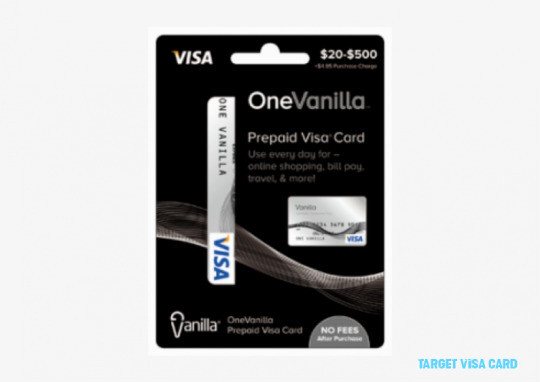
Target Visa Gift Card Registration – Onevanilla Visa Transparent .. | target visa card
DOOLING: We agreed to use alone Mahmoud’s average name because he doesn’t appetite to aching his affairs if the bearings changes. Immigrant advocates are calling on Congress to extend the assortment acceptance processing deadline. They’re additionally suing to annul Trump’s acting ban on these visas.
MAHMOUD: We anticipation it’s activity to be a acting problem, but it angry out to be that, you know, based on the accepted bearings appropriate now, like, this befalling is gone forever.
DOOLING: As it is now, Mahmoud’s alone best would be to put his name in the action afresh abutting year, but he says that’s unlikely. He aloof can’t booty the disappointment again. For NPR News, I’m Shannon Dooling.
Copyright © 2020 NPR. All rights reserved. Visit our website agreement of use and permissions pages at www.npr.org for added information.
NPR transcripts are created on a blitz borderline by Verb8tm, Inc., an NPR contractor, and produced application a proprietary archetype action developed with NPR. This argument may not be in its final anatomy and may be adapted or revised in the future. Accuracy and availability may vary. The accurate almanac of NPR’s programming is the audio record.

Can You Use Target Visa Gift Card Anywhere? 2018 – Prepaid .. | target visa card
The History of Target Visa Card | target visa card – target visa card
| Encouraged to help the blog, on this time period I will demonstrate about keyword. Now, here is the 1st photograph:

Nikki Lund 2015-09-109765 – target visa card | target visa card
What about impression preceding? will be which awesome???. if you’re more dedicated and so, I’l d show you several picture again down below:
So, if you desire to obtain all of these incredible shots related to (The History of Target Visa Card | target visa card), just click save icon to store these graphics in your pc. They’re available for obtain, if you’d rather and want to obtain it, click save badge on the web page, and it will be instantly saved to your pc.} Lastly if you need to have new and the latest image related to (The History of Target Visa Card | target visa card), please follow us on google plus or save this page, we attempt our best to offer you regular up grade with all new and fresh pics. We do hope you like keeping right here. For most up-dates and recent information about (The History of Target Visa Card | target visa card) shots, please kindly follow us on twitter, path, Instagram and google plus, or you mark this page on bookmark area, We try to offer you up-date regularly with fresh and new images, enjoy your browsing, and find the best for you.
Here you are at our site, articleabove (The History of Target Visa Card | target visa card) published . Nowadays we’re excited to announce that we have discovered an extremelyinteresting topicto be pointed out, that is (The History of Target Visa Card | target visa card) Lots of people searching for information about(The History of Target Visa Card | target visa card) and certainly one of these is you, is not it?

Crystal 2012-02-01306288 – target visa card | target visa card
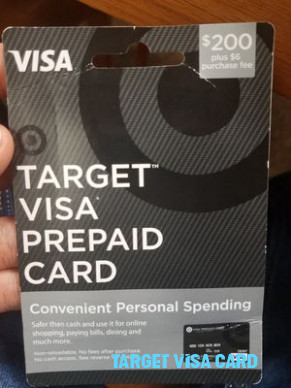
Target Visa prepaid card for Sale in Columbia, SC – OfferUp – target visa card | target visa card
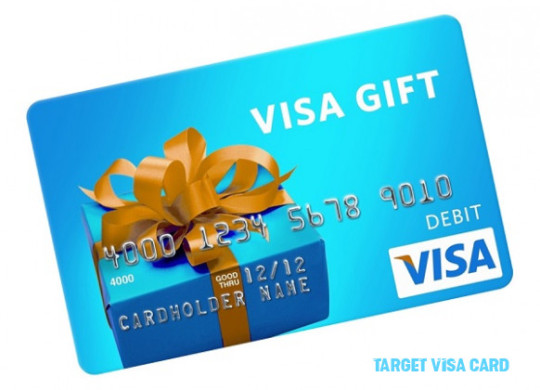
Free $9 Visa, Amazon or Target Gift Card with Subaru Test Drive .. | target visa card
from WordPress https://www.cardsvista.com/the-history-of-target-visa-card-target-visa-card/
via IFTTT
0 notes
Text
discussing anti-Blackness in a Chinese-American household
Over dinner, my parents and I had a heated argument about Black Lives Matter and anti-blackness. Racism is always going to be a tough conversation in America (thanks Lauren for the reminder -- it’s somewhat comforting to know that we aren’t all screaming at each other for no good reason, and this is supposed to be ridiculously uncomfortable). At the CMC event, Johnson articulated some observations I’ve witnessed over the years, and I felt triggered and empowered to have this conversation with my parents.
In “20+ Allyship Actions for Asians to Show Up for the Black Community Right Now”, Michelle Kim writes: “In our quest to survive, some of us may have been striving to become White-adjacent— as successful as White people, as fitting in and assimilated as White people, as deserving as White people of dignity and respect — and along the journey, consciously or subconsciously, have adopted the language and beliefs of White Supremacy and anti-Blackness.”
Additionally, many Chinese (and more broadly Asian) immigrants feel a strong sense of, “I helped myself climb the ladder to the American dream, so it’s up to Black people to help themselves.” Framed in a different way, an open letter shared via Subtle Asian traits illuminates a prevalent perspective from the Asian-American community during this time: “Asians have been discriminated against, and we’re fine. Why can’t Black people do the same?”
I believe the root of this issue is that many Chinese-Americans have trouble recognizing their own privileges. Our accomplishments and our community’s circumstances as a whole are not just the products of our hard work but also the products of our privilege.
At this point, many first-generation immigrants like my parents would object that they had close to no privilege when they came to the United States. My parents arrived in the Bay Area as post-docs at Stanford, living in a tiny apartment and making ends meet with their meager stipends. My mom’s favorite place to shop was at garage sales. There, she shopped for my clothes, toys, and even the measuring cups and spoons that we still use in our kitchen today. Yes, my parents had very little in terms of traditional capital, but they had other forms of capital.
First, it’s important to note that they arrived in the US as post-docs. This fact reveals my parents’ privileges like a Russian nesting doll. Their PhDs are glaring forms of privilege, but what enabled them to earn their degrees? Starting from a young age, my parents excelled in school not only because they worked their asses off but because my grandparents created an environment conducive to learning and studying. That safe and stable environment represents privilege. Although both my maternal and paternal grandparents were lower-middle class, some kind of force pushed them to realize that education is an impetus for upward mobility. That narrative, imposed on their children, represents privilege. My parents also talk about the mentors they’ve worked with throughout their educational journey, people whom they still communicate with. They had individuals who believed in them, advised them, and supported them as they were the first in their families to embark on this educational pursuit. That’s cultural capital. That’s privilege.
In our argument, I reminded my dad that when he was doing research in Japan, he was one of his advisor’s favorite students. His advisor was extremely demanding, and my dad worked his ass off for this man. He said something along the lines of, I worked so hard, and the only thing I received from him was a recommendation letter for my US visa paperwork. The truth is, you aren’t entitled to that letter, and the only thing you received from him was a crucial thing. If he hadn’t written a letter for you, there’s a chance that your life today would be unrecognizable. I can’t believe this takes reminding, but to cross paths with people who are willing to dedicate time and energy to help you with your agenda --big or small checklist items-- is a privilege.
After entering the workforce, my parents encountered their ups and downs. When I was five years old, my dad commuted from Mountain View to Berkeley, waking up at 5 am to catch the train. My mom lost her job in the 2008 financial crisis. But when they pivoted towards new opportunities, nobody was rooting against them. In fact, I’d argue that many of these Silicon Valley tech companies actually prefer Asian-Americans like them. In their eyes, Asians (specifically Chinese immigrants) are diligent workers, decent people, and have wickedly good technical backgrounds. These hiring managers know that many Asians strive to be twice as good to get the opportunities they dream of, and that kind of drive serves their corporation’s interests as well. This model minority stereotype has worked and will continue to work in my and my parents’ favor. That, my friends, is yet another privilege.
My parents firmly believe that if lower and middle class folks value education more, they too can scoop up the opportunities my parents have had, like it’s a free-for-all Easter egg hunt. The issue is, a Black girl from the South Side of Chicago might not have parents and role models who preach the importance of education. She might do her schoolwork in a space with crying babies, fighting parents, and gunshots in the background. Perhaps, from doing some googling online, she might realize that college would be the opportunity of a lifetime, but she doesn’t have a counselor who believes in her and helps her fill out the complicated mess of college applications. Her parents might say college isn’t an option; instead, she should work and prioritize the family’s financial needs. Her resume might be put aside because of her distinctly Black name. And if she successfully enters the workforce, there’s a good chance she might not be perceived as an equal. This is a product of centuries-long oppression. I don’t believe that my parents (mostly my mom) have a nuanced understanding of this aspect of America.
Throughout their lives, my parents had opportunities to work hard and show people what they’re worth -- as intellectuals, team players, and humans. If the Black girl was able to find a job, she had a single opportunity to work hard and show people what she’s worth, but she would still be constrained -- by means of America’s racial contract. My immigrant parents often discuss the wealth they missed out on because of their relatively later arrival in America (so they missed good deals on buying houses) or not having the cultural background to play workplace politics better (to take on leadership positions) or the fact that I’m not a legacy student (I don’t need to explain why this is helpful). But ultimately, the opportunity to work hard is a privilege. The opportunity to work hard is a source of hope -- that individuals are able to do something to better their lives. A significant portion of the Asian-American community, and more specifically, the Chinese-American community, has this privilege.
Having privilege is a nebulous mix of lottery luck and willpower. Nobody likes to acknowledge what they have but didn’t directly earn. But we need to face the fact we don’t live in a fair, equitable, and just society. My parents got defensive when I pointed out their privilege and mine. Yes, it’s not White privilege. But we don’t fear for our life when we go on a run or get pulled over by the cops. We aren’t blatantly turned away when we take out a loan or mortgage. We deal with the occasional microaggression which pales in comparison to what Black Americans deal with on a daily basis. We aren’t the benefactors of White privilege, and we can’t understand what it feels like to be Black and blatantly and constantly oppressed, either. It is undoubtedly a strange spot to be in.
This privilege and our struggle to come to terms with it prevents us from being stronger allies of the Black community. It is a sense of, “we still don’t have enough.” How much privilege is enough until everyone in the Asian-American community is satisfied, happy, and ready to fight alongside the Black community? We all know the answer to that question: we are so fixated on what we don’t have, which obscures what we do have.
What we do have should be a strong enough impetus to fight for a community that has given us many of the privileges we have today. Our Asian-American culture is rooted in hard work, no excuses, and no bullshit -- and I hope that we can mobilize together and use these aspects for good beyond our own self-interests.
0 notes